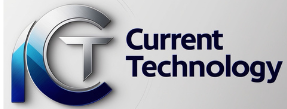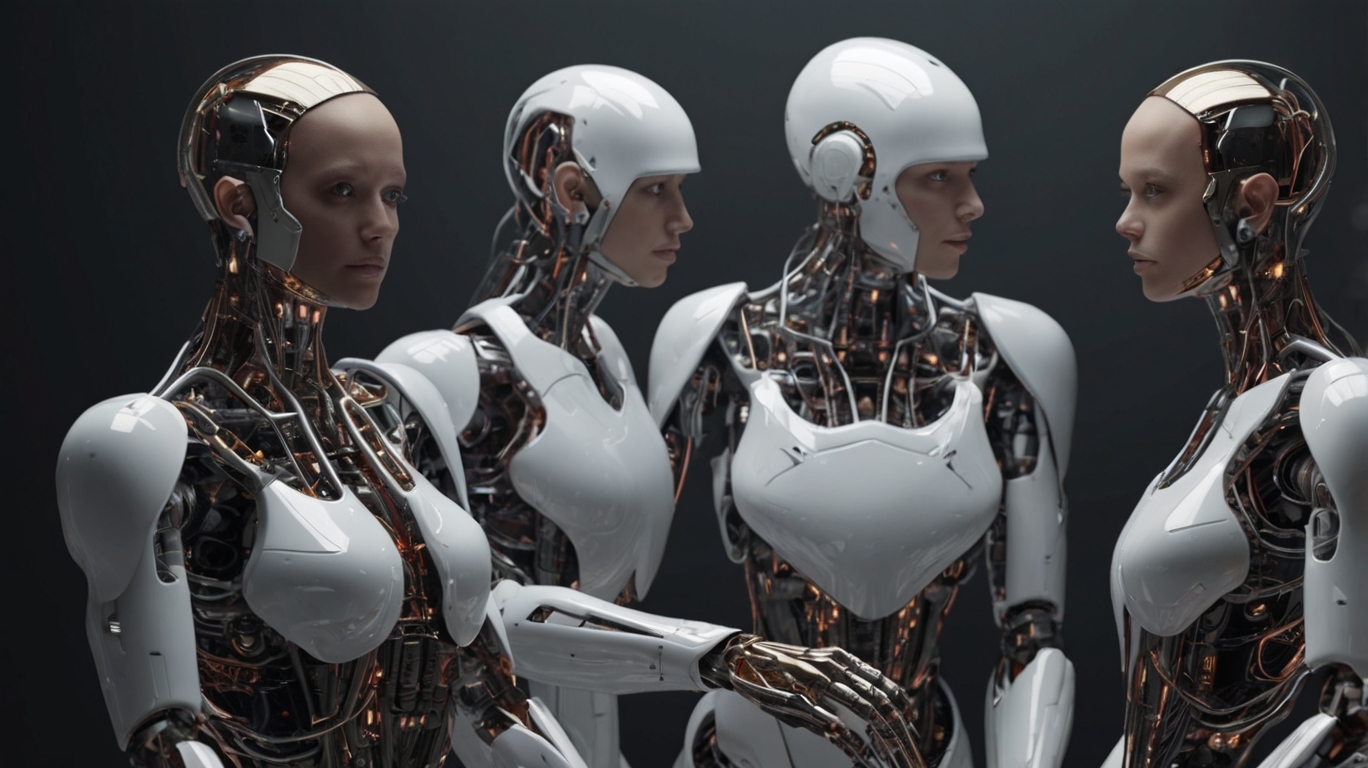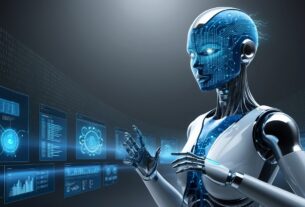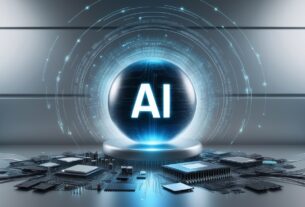The 21st century has been marked by groundbreaking technological revolutions, but none have captivated the world quite like artificial intelligence (AI). As AI evolves from theoretical constructs to practical, everyday applications, nations across the globe are racing to establish dominance in this transformative domain. This competition is not merely about economic leverage or technological supremacy; it touches every aspect of modern life, from healthcare and transportation to military strategy and national security. At the heart of this race lies a complex matrix of innovation, ambition, and deep ethical concerns that demand a thoughtful global response.
AI as the New Frontier of Global Power
Historically, global power was measured in terms of military might, economic strength, and political influence. Today, data and algorithms are the new assets of power. Countries that lead in AI are positioned to shape the future in profound ways. China, the United States, and the European Union are often seen as the primary players in this arena, each bringing unique strengths and challenges to the table.
The United States, long considered the cradle of tech innovation, hosts some of the world’s most influential AI companies, including OpenAI, Google DeepMind, and NVIDIA. Its strength lies in its robust private sector, research universities, and a culture that promotes entrepreneurial risk-taking. Meanwhile, China has made AI a cornerstone of its national strategy. Backed by massive government investment and a vast trove of data, China is leveraging AI in everything from facial recognition to autonomous vehicles, often pushing the boundaries of privacy and surveillance in the process.
The European Union, on the other hand, has taken a more cautious and regulatory-driven approach. While the EU may not match the raw AI investment of the US or China, it is leading the global conversation on AI ethics and governance. The EU’s proposed AI Act, for example, seeks to create a comprehensive legal framework for the responsible use of AI, placing a strong emphasis on human rights and transparency.
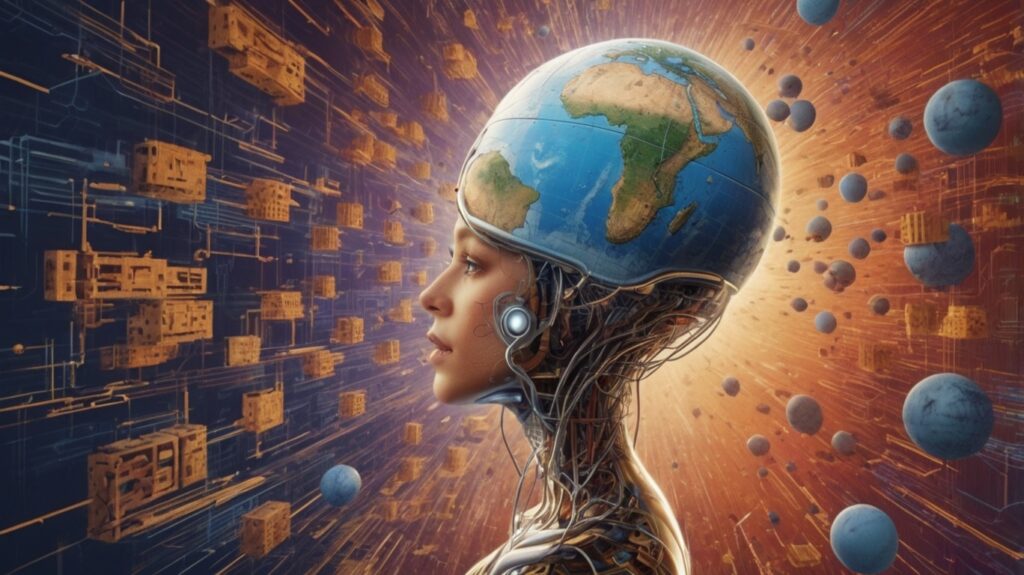
Innovation Driving the Race
The engine of the AI race is innovation. Across the globe, research labs and tech firms are developing systems that not only replicate human intelligence but in some areas, surpass it. From natural language processing models like GPT to sophisticated computer vision systems, AI is proving capable of tasks previously thought exclusive to human cognition.
Healthcare has emerged as a major frontier for AI applications. Algorithms are now used to detect diseases like cancer and diabetes earlier and more accurately than ever before. In education, AI-powered tools are personalizing learning experiences, helping students from diverse backgrounds succeed. Meanwhile, AI in agriculture is helping optimize yields and reduce waste, which is critical in a world facing climate change and population growth.
However, as the capabilities of AI expand, so do the stakes. Autonomous weapons, predictive policing, and deepfake technologies pose significant risks if left unchecked. The challenge lies in harnessing the power of AI for good while preventing its misuse.
Ethical and Social Implications
One of the most pressing aspects of the global AI race is the ethical quandary it presents. As AI becomes more embedded in decision-making processes, concerns about bias, fairness, and accountability grow louder. AI systems trained on biased data can perpetuate and even exacerbate social inequalities. For instance, facial recognition systems have been shown to have higher error rates for people of color, leading to wrongful identifications and arrests.
Moreover, the automation potential of AI threatens to displace millions of jobs, particularly in sectors like manufacturing, customer service, and transportation. While some argue that AI will create new jobs, the transition could be turbulent, especially in economies that lack the infrastructure to reskill workers.
Surveillance is another critical concern. In some countries, AI is being used to monitor citizens on an unprecedented scale. While this can enhance security, it also poses significant threats to privacy and civil liberties. The balance between security and freedom is delicate, and AI is tipping the scales in ways that are not yet fully understood.
Global Cooperation or Fragmentation?
The global nature of AI calls for international cooperation, yet what we often see is a fragmented landscape. Nations are developing AI policies in isolation, leading to a patchwork of standards and regulations. This fragmentation hampers collaboration and increases the risk of an AI arms race.
The United Nations, the OECD, and other international bodies have begun efforts to create global norms for AI development and use. However, these initiatives often struggle to gain traction amid geopolitical tensions. The lack of a unified framework makes it difficult to address transnational issues like algorithmic bias, cross-border data flows, and the ethical use of AI in warfare.
Yet, there are promising signs. Collaborative research projects, open-source AI platforms, and academic partnerships are helping bridge the gap between nations. Some experts suggest that establishing an international AI regulatory body, similar to the International Atomic Energy Agency (IAEA), could be a way forward.
The Role of the Private Sector and Civil Society
While governments play a central role in shaping AI policy, the private sector and civil society are equally critical. Tech companies are the primary developers of AI systems, and their decisions around data collection, algorithm design, and deployment have far-reaching consequences.
Increasingly, these companies are recognizing their responsibility. Initiatives like Google’s AI Principles and Microsoft’s AI for Good program signal a shift toward more responsible AI development. Still, critics argue that self-regulation is insufficient and that without external accountability, profit motives will continue to outweigh ethical considerations.
Civil society organizations, think tanks, and academic institutions are vital in holding both governments and corporations accountable. They advocate for transparency, inclusive policymaking, and the protection of human rights in the age of AI. Their role is especially important in amplifying the voices of marginalized communities who are often most affected by AI-related harms.
Education and Public Awareness
For AI to be a force for good, public understanding must catch up with technological advancement. There is a growing need for AI literacy at all levels of society. This includes not only educating the workforce to adapt to AI-driven changes but also empowering citizens to engage with the ethical and social dimensions of AI.
Schools and universities are beginning to incorporate AI education into their curricula, but there is still a long way to go. Public awareness campaigns, accessible educational resources, and community engagement initiatives are essential to build an informed citizenry that can participate in shaping the future of AI.
Looking Ahead: The Path to a Just and Equitable AI Future
The global race for AI supremacy is far from over, and its outcome will shape the trajectory of the 21st century. As nations push forward, it is essential to ensure that innovation does not come at the cost of human dignity, equity, or freedom.
The road ahead requires a delicate balance of ambition and responsibility. Policymakers must craft laws that foster innovation while protecting public interests. Companies must prioritize ethical considerations in their pursuit of technological breakthroughs. Citizens must stay informed and engaged, demanding transparency and accountability from both governments and corporations.
Ultimately, the question is not just who will win the AI race, but what kind of world we are creating in the process. Will it be a world where AI enhances human potential and bridges social divides? Or one where it deepens inequality and erodes fundamental rights?
The choice is ours to make. And it is a choice that must be made collectively, with wisdom, courage, and an unwavering commitment to the common good.
FAQ: The Global AI Race and Its Implications
1. Why is artificial intelligence (AI) considered the defining technology of the 21st century?
AI represents a transformative shift in how societies function, influencing every sector—from healthcare and transportation to defense and education. Its ability to replicate or surpass human cognition makes it a foundational technology for future innovation and global influence.
2. How does AI relate to global power dynamics?
In today’s world, global power is increasingly determined by data, algorithms, and technological capability. Countries leading in AI development are positioned to shape economic trends, security frameworks, and societal norms, much like how military and economic power defined influence in past eras.
3. Which countries are leading the AI race and how?
- United States: Dominates through private sector innovation (e.g., OpenAI, Google, NVIDIA), supported by top research institutions and a startup-friendly culture.
- China: Focuses on state-led development with massive government investment and broad data access, but often faces scrutiny over privacy and surveillance concerns.
- European Union: Emphasizes ethical AI development, proposing comprehensive legislation like the AI Act that prioritizes transparency and human rights.
4. What are the main areas where AI is being applied today?
AI is being used across various domains, including:
- Healthcare: Disease detection, diagnostics, and personalized treatment plans.
- Education: Adaptive learning tools and individualized tutoring.
- Agriculture: Precision farming, yield optimization, and climate resilience.
- Security & Surveillance: Monitoring systems, predictive policing, and facial recognition.
- Transportation: Autonomous vehicles and smart infrastructure.
5. What are the key ethical and social concerns related to AI?
- Bias and discrimination in AI models, especially affecting marginalized communities.
- Job displacement due to automation in industries like manufacturing and customer service.
- Privacy issues related to mass surveillance and data usage.
- Accountability in decision-making by autonomous systems.
- Use in warfare, including autonomous weapons and strategic military applications.
6. Is there global cooperation on AI governance?
Efforts exist, but the landscape is fragmented. While bodies like the UN and OECD are working on shared principles, geopolitical competition often hinders progress. A unified framework—potentially through an international AI agency—has been proposed to address transnational challenges.
7. What role does the private sector play in the AI race?
Tech companies are at the forefront of AI development. While many now advocate for ethical principles (e.g., Google’s AI Principles, Microsoft’s AI for Good), concerns persist that self-regulation is inadequate without external oversight or accountability mechanisms.
8. How can civil society influence the future of AI?
Civil society—including advocacy groups, academic institutions, and NGOs—plays a crucial role in promoting transparency, fairness, and inclusivity in AI development. These groups help ensure that AI serves the public interest and protects vulnerable populations.
9. What is being done to improve AI literacy among the public?
There’s a growing movement to integrate AI education into school and university curricula. Additionally, public awareness campaigns and community engagement initiatives aim to equip citizens with the knowledge to understand and influence AI policy and ethics.
10. What does the future hold for AI and global society?
The outcome of the AI race will shape our collective future. Key questions revolve around whether AI will:
- Empower humanity and close social gaps,
- Or exacerbate inequality and restrict freedoms.
The direction depends on collective choices made by governments, corporations, and individuals—requiring wisdom, collaboration, and a strong ethical compass.
Read also:
